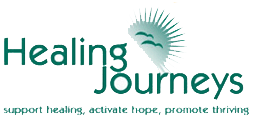Dear Friends,
One of the worst feelings I have experienced is hopelessness. Even anger is more empowering. In the middle of an economic downturn, or a cancer recurrence, it’s easy to slip into fear or hopelessness and it seems to spiral down from there.
David Feldman, in his talk at the San Mateo conference in October, talked about the conditions necessary for hope to thrive.
The first condition is that we need something to hope for — a beacon in the future that keeps us inspired.
The second condition is that we need a pathway — a strategy for how to get there from here.
The third condition is that we need to have the motivation or energy to get off our butts and do something.
The kind of hope he is talking about is empowering. It’s not the flimsy feeling that we hang onto when nothing else is left. And it isn’t putting on a happy face and denying reality. Hope is a perception that accepts reality, and builds on it. When we are hopeful, we notice things that we wouldn’t notice otherwise, and it’s much more likely that we will achieve our goals.
I remember something the Jungian analyst and author, Marion Woodman, said at our conference at Stanford in 1996. Her oncologist in Toronto had told her there was no effective treatment for her Ovarian cancer and she should get her affairs in order because she was going to die. She told him, “If I stay in treatment with you, I will die.”
She had something to hope for — life, but he took away her pathway by telling her it wasn’t possible. Hope lives in the realm of the possible. Fortunately, Marion saw another doctor at Stanford for a second opinion, and he said “I think I can help you.” With this new pathway, she became hopeful again, and she did achieve her goal; she is still living at 82.
When we are hopeful, we are less depressed, less anxious, more tolerant of pain, healthier, and more likely to achieve our goals. Hope sounds like pretty powerful “medicine.” So what can we do to activate it?
In David Feldman’s recent presentation, he gave us several ideas for what we can do to nurture our hope.
Don’t be afraid to hope. Have you ever been told not to get your hopes up? Somehow we have the idea that if we don’t reach our goal, it will hurt worse if we had our hopes up. There’s no evidence for that, and the truth is that we are more likely to reach our goals if we are hopeful.
Take your hope temperature and determine where your hope falters. Do you have dreams? Is there a way to get there from here? Are you motivated to take action?
Allow yourself to daydream.
I could share lots of examples of personally putting this into practice, but I will limit myself to one. Even though I’ve had numerous recurrences of breast cancer, I hope I won’t have to deal with it again. One of my pathways is the empowering information I’ve learned from Jeanne Wallace and Rebecca Katz in The Cancer-Fighting Kitchen workshop. I’m creating a terrain in my body that is inhospitable to cancer. And Rebecca Katz’s recipes are so delicious that I’m motivated to create healthy meals.
Healing Journeys’ mission is to support healing, activate hope, and promote thriving. How has Healing Journeys helped you to activate your hope?
In the spirit of healing,

Jan Adrian, MSW
Founder and Executive Director


Bless you, sista – thank you for who you are and ALL that you think and feel and say and do – reading the newsletter after San Mateo, I really enjoyed getting to share your vibe – I’m sure I’m not the only one who was uplifted by the way you were Loving your Life in (electronic) print – very healing for a lot of people – thank you for BEing like that for us all – sending Light every time I think about you, Jan – peace
Jan, I loved your December message on Hope, Amen is all I can say.Since my Brain tumor Dx it’s 13 years and counting, and “hope” played a huge part in it! Even when I do face “the end” it will be with hope for a beautiful revelation ahead! Merry Christmas Jan and I wish you a Happy & Healthy New Year! Cheryl